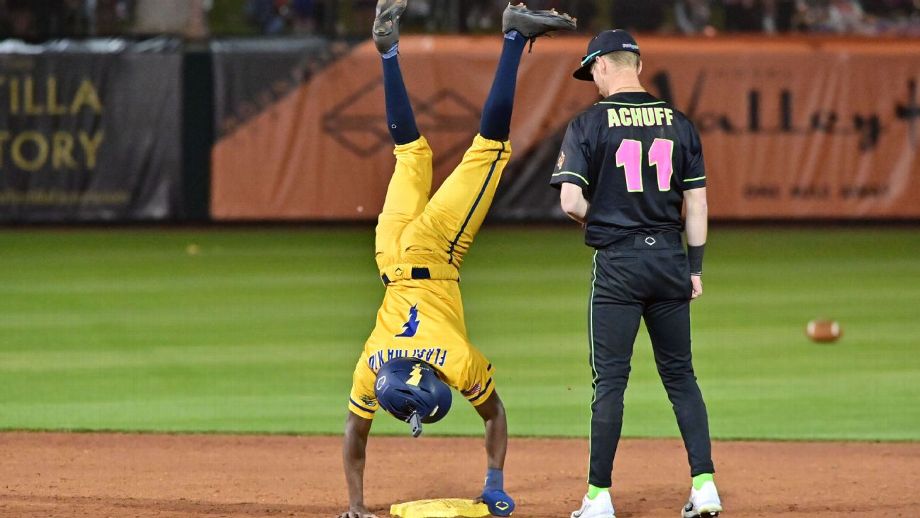What to Watch Verdict
There's a decent movie buried beneath this wall of pretention.
Pros
- +
Solid class-conscious character dynamics.
- +
Gorgeous cinematography.
Cons
- -
Main plot is thematically muddied.
- -
The examination of racism is lacking and vestigial.
It’s easy to see the good intentions and narrative intrigue that are supposed to drive The Wall of Mexico, a film specifically designed for the modern Trumpian climate of class dominance and anti-Hispanic racism. It’s a film that is clearly written with political purpose, with philosophical designs toward provocative thought, and in some ways it succeeds. However, that success comes at the cost of choosing what ideas are worth examining from scene to scene, so instead of a solid foundation to build a story of power dynamics and racial animosity, The Wall of Mexico is riddled with gaps that contradict the otherwise solid craftsmanship.
Following wealthy Mexican-American family the Aristas, The Wall of Mexico places us in the perspective of Don (Jackson Rathbone), one of the many white people from the surrounding town who have been hired to care for and manage the estate colloquially known as “Mexico.” The Aristas own a well that the white residents claim holds water with mystical properties that contribute to the Aristas’ youthful appearance and good health. Once the well’s water level starts to gradually disappear, the Aristas charge Don with guarding the well and eventually go so far as to erect a wall around their estate to prevent thieves from stealing their prize.
Though this plot is what supposedly drives the narrative, it’s also the weakest and muddiest aspect of the film. The rather simple and straightforward set-up of the Aristas’ strained relationship with the surrounding community is teased out at a torturously slow pace that leaves long narrative gaps begging for something to fill them. This eventually culminates with Don having a more personal stake in the well and its contents, but in the process it falls into some perilous traps that don’t successfully disentangle the racial dimension of its allegory from the socioeconomics.
Don is positioned as a protagonist who becomes disillusioned with economic power and the xenophobic influence it has on those who wield it, but centering a white person as the victim of an inversion of real-world power dynamics does little to build empathy and actually serves as justification for villainizing the Aristas along racial lines. This likely isn’t a conscious consequence of the film, as it clearly uses the visual symbolism of barriers and wealthy excess to tie economic power to real-world xenophobia, but swapping the races of the people affected by that xenophobia does little to communicate anything more than the simple platitude that power corrupts, while still ignoring who holds that power and why.
However, when treating Don and the Aristas as actual characters, rather than as political stand-ins around its tortured magic water metaphor, The Wall of Mexico displays at least some promise as a dark comedy about classism. Don becomes specifically infatuated with the two daughters of the Arista family, Ximena (Carmela Zumbado) and Tania (Marisol Sacramento), and a great deal of screen time is devoted to the sisters’ absurdist partying and Don’s fascination as an outsider who is occasionally invited in as a piece of novel entertainment. The sisters display a vast vocabulary that speaks to extensive education without an avenue to properly apply it, so it becomes a vapid signifier of their class privilege that leaves Don in a world where he doesn’t speak the language, even as the words spoken are recognizably English but say little in the process.
In these moments where the film slows down into a hangout vibe with these fascinatingly reprehensible avatars of privilege, it nails home the class-conscious messaging even as it distracts from what annoyingly and pervasively constitutes the main plot. It’s during these sequences where one can most appreciate the film’s gorgeous cinematography, which is often symbolically prescient but also just knows when to embrace the beauty of a twilit landscape. If the entire film had been focused on examining this class dynamic, it wouldn’t have come across as pretentiously cute as the people it seeks to lampoon.
In that sense, The Wall of Mexico does succeed in building a barrier, but it walls off its intelligent observations behind mismatched snippets of social commentary. The jagged edges of the story it wants to tell still allow you to see past it to the prescient points it astutely examines, but you still have to cut yourself on the intended plot to reach the good stuff. And unlike the waters of a magic well, the good stuff isn’t a cure-all for what you had to endure to reach it.
The Wall of Mexico opens in virtual cinemas starting on September 18, 2020, and will release on VOD on October 13, 2020.
Leigh Monson has been a professional film critic and writer for six years, with bylines at Birth.Movies.Death., SlashFilm and Polygon. Attorney by day, cinephile by night and delicious snack by mid-afternoon, Leigh loves queer cinema and deconstructing genre tropes. If you like insights into recent films and love stupid puns, you can follow them on Twitter.












